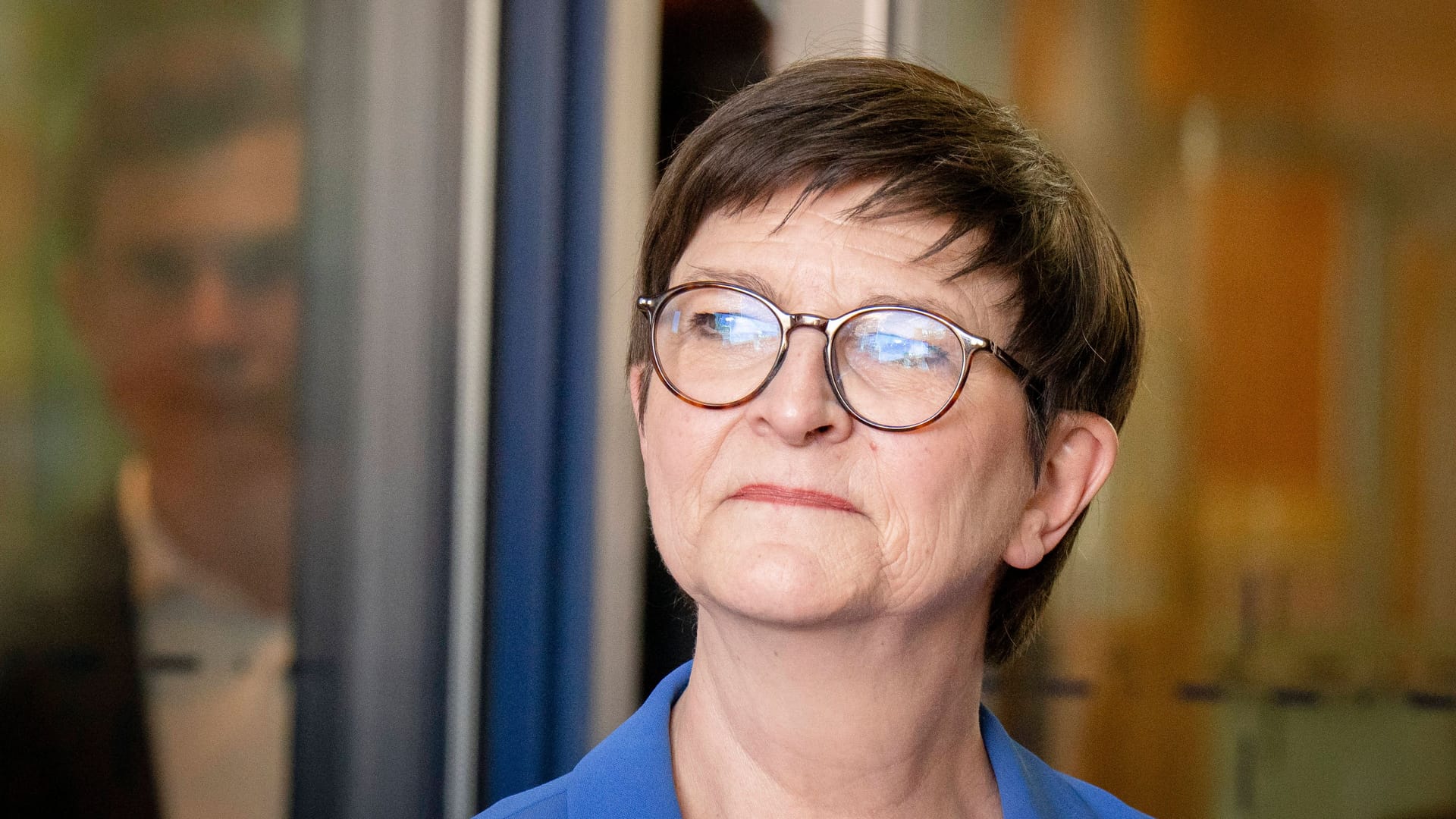Coalition negotiations between the Union and the SPD
Esken: want to stick to asylum on the fundamental right
Updated on 07.04.2025 – 07:39 a.m.Reading time: 3 min.


This week, too, the Union and the SPD negotiate the basis of a coalition at the federal level. The pressure on the CDU and CSU is growing.
Due to the falling survey values and internal criticism of the base, the Union is under pressure during the coalition negotiations with the SPD. The negotiators want to negotiate again in Berlin on Monday. SPD boss Saskia Esken in particular puts pressure on the Union.
It was very clear that the SPD wanted to adhere to the fundamental right to asylum, she said on Sunday evening on the ZDF program “Berlin Direkt”. It is rightly anchored in the constitution. When asked whether asylum procedures could also be outsourced in third countries, ESKE said that other countries had already tried this. “It didn’t work everywhere,” she said with a view of Italy. There, the right-wing government of Giorgia Meloni wants to handle asylum procedures in Albania, but encounters resistance from the judiciary. “We shouldn’t waste our energy on such tests,” said ESKE.
Before the Bundestag election, the Union had called for a significantly harder course in migration policy. In the election campaign, Merz had said that on the first day of an term as Chancellor, he wanted to instruct the Interior Ministry by means of his directory to “reject all attempts from the illegal entry without exception”.
Union wants black handwriting in the coalition agreement
In the crucial phase of the negotiations, CDU and CSU insist that the coalition agreement must bear a clear black handwriting. Hesse’s Prime Minister Boris Rhein (CDU) told the Editorial Network Germany (RND) with a view to the election result: “Basically, the following applies: There is an enormous percentage between the Union and the SPD. This must be reflected in the coalition agreement.”
The background is the resentment within the Union base that CDU boss Friedrich Merz cannot enforce the policy change promised in the election campaign in topics such as migration, economic and defense policy.
Brandenburg MPs criticized change since the election campaign
The critics include the Brandenburg CDU member of the Bundestag Saskia Ludwig. “Since the founding of the AfD 2013, it has been clear why this party is growing. The CDU has not served the supporters of a center-right policy over the years,” she told the “Tagesspiegel”. “In the 2025 election campaign, we made it clear that we wanted to make a liberal-bourgeois policy again.” In their view, this promise is not being met.
In the Junge Union (JU), criticism of the previous negotiations is also loud. Ju-boss Johannes Winkel (CDU) told the “Süddeutsche Zeitung” on Sunday when asked whether he would vote against a coalition with the SPD if there was no change of policy in the areas of migration, economy and bureaucracy: “Everything else would correspond to the motto” as an end in itself “.”
“The CDU must not sign a coalition agreement without a change of policy coming,” said the head of the youth organization. “The times when the motto was applied, we get the Chancellery and the Social Democrats the content, they are actually over.”
The voters recently punished the Union. Six weeks after the Bundestag election, the competition from the right wing caught up: AfD and CDU/CSU are in a survey by the opinion research institute Insa for the “Bild” newspaper each 24 percent. For comparison: In the Bundestag election on February 23, the Union still won 28.5 percent, the AfD landed behind it with 20.8 percent.
The deputy CDU chairman Karin Prien showed understanding for possible impatience among the population. “I understand that many citizens want quick and clear changes,” she told the Funke media group. The goal is to form a government for all Germans. “This will succeed and that will also see those who are now continuing to the edges in the surveys,” said the Schleswig-Holstein Minister of Education.












